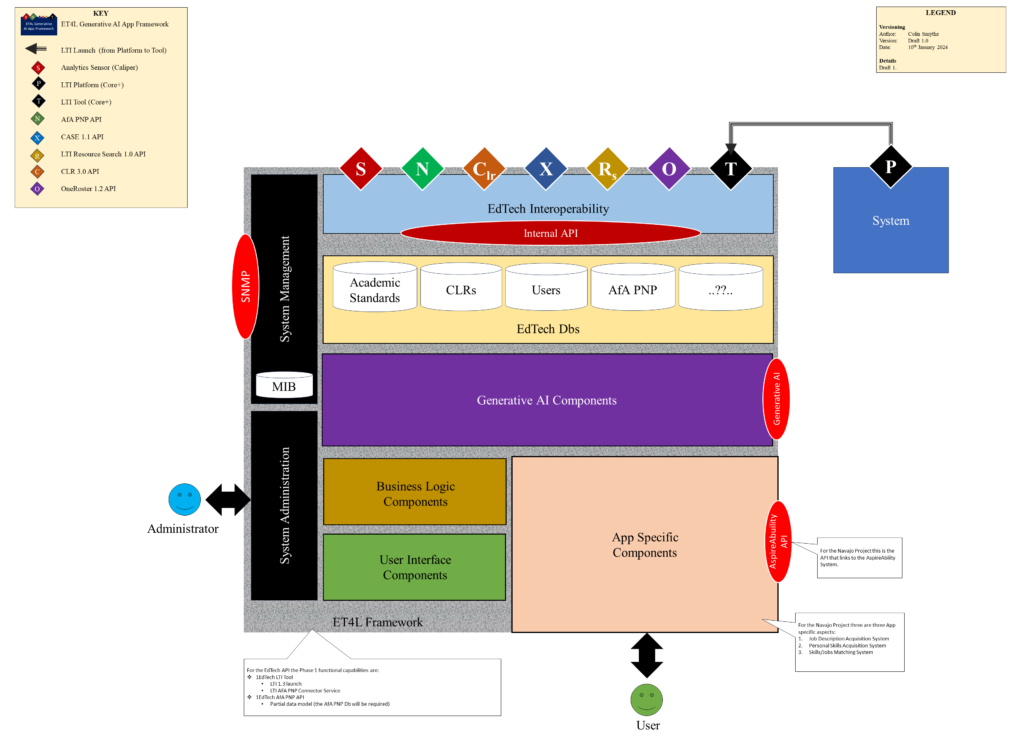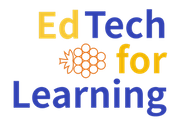Interoperability Framework
The aim for this project is to create an open-source services framework to enable any learning and teaching app to use Generative AI and the appropriate edtech interoperability standards. The framework is designed to make available the following capabilities:
-
- Interoperability standards for edtech;
- Interoperability standards for device management;
- Integration with Generative AI services
The use of this framework means that developers of teaching and learning apps can focus on the core functionality for the app while having access to a wide range of interoperability services.
A schematic representation of the interoperability framework is shown.

The set of edtech interoperability services to be supported by the framework are:
-
- 1EdTech Learning Tools Interoperability (LTI) and several of the extension services –
- 1EdTech Caliper – enables the app to send analytics information to a 1EdTech an analytics repository endpoint
- IEEE 9274 (xAPI) – enables the app to send analytics information to an xAPI analytics repository endpoint
- Access for All Personal Needs & Preferences (AfA PNP) – to enable the user experience for the app personalized to the user’s accessibility preferences
- 1EdTech Competencies & Academic Standards (CASE) – to make available the set of learning standards associated with a learning resource and/or activity
- 1EdTech LTI Resource Search – to enable search of learning object repositories
- 1EdTech OneRoster – to enable access to the rostering information for an activity, to report gradebook information and to obtain the list of resources to be made available to a user
- 1EdTech Comprehensive Learner Record (CLR) – to access the micro-credentials for an individual.
The framework will also support the IETF Standards Simple Network Management Protocol (SNMP) and the Management Information Base (MIB).
Eventually the framework will be available in several codebases. The initial codebase is NodeJS.
We hope to make Version 1 of the framework available in early 2025.

